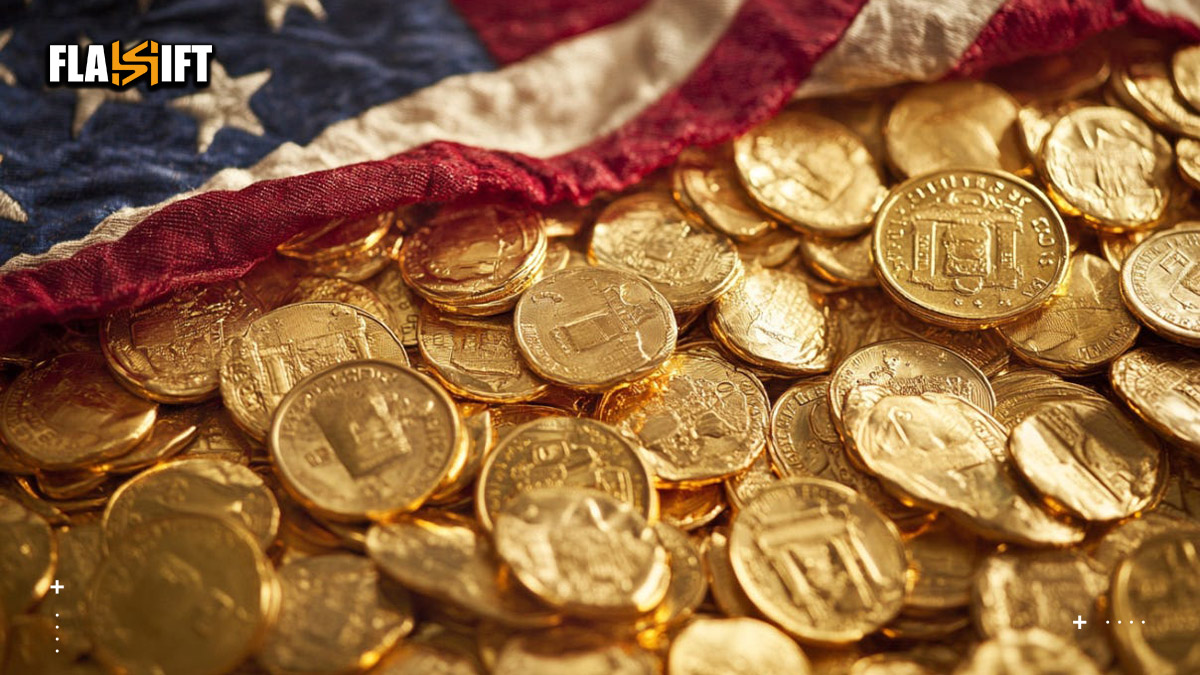Increasing numbers of investors are now interested in safeguarding wealth by purchasing tangible assets like gold. But the journey is far from straightforward, as one may perceive. The tax implications of buying gold with crypto are complex and vary from one jurisdiction to another. This guide assists you in finding out about the law, risks, and duties on cryptocurrency gold purchase taxes so that you stay in line while protecting your future money.
Overview of Crypto Taxation
Cryptocurrencies like Bitcoin and Ethereum are treated differently according to crypto taxation regulations within each nation. For most investors, crypto is considered a property or an asset, but not a currency, so that transactions could bring about capital loss or gain.
Crypto and Capital Gains Tax
When you sell out or use cryptocurrency to buy gold, the government considers that a taxable event. You might be taxed on the profit if your cryptocurrency has gained value since you purchased it.
Cryptocurrency Is Not Cash
As crypto is legal tender in only a few countries, its use in transactions, such as buying gold, is deemed a disposal. That disposal must be taxed and reported accordingly.
Crypto Taxation Differences by Holding Period
In jurisdictions like the U.S., your tax rate may depend on how long you held your crypto:
- Short-term gains (held under 12 months) are taxed as ordinary income.
- Long-term gains (held over 12 months) may benefit from reduced tax rates.
Understanding your holding period can significantly influence how much tax you owe.
Tax Treatment of Gold Purchases with Crypto

To be compliant, it is necessary to understand how governments treat gold and crypto. Buying physical gold with Bitcoin is typically considered a barter transaction, so both sides (the sale of crypto and the buying of gold) are scrutinized.
Double-Tax Scenarios
When you use Bitcoin to buy gold, two taxable events may occur:
- Disposing of crypto: You may incur capital gains.
- Acquiring gold: You may need to report the purchase depending on its value.
Gold as a Taxed Commodity
In many jurisdictions, gold is subject to Value Added Tax (VAT) or sales tax unless exempted as investment-grade bullion. Ensure the gold you purchase meets exemption criteria to avoid additional taxes. Real example:
Picture shelling out $10,000 in gold using Bitcoins you purchased years earlier for $2,000. You might owe capital gains on the $8,000 gain when no fiat ever changed hands.
Physical vs. Tokenized Gold
There is growing interest in tokenized gold assets like PAXG or XAUt. These may still involve taxable events, especially when converting crypto into these tokens or redeeming them for physical gold. Always verify how your jurisdiction treats tokenized assets.
Reporting Requirements in Different Jurisdictions

Tax laws differ significantly by country. Let’s explore how some major regions treat reporting gold purchases with Bitcoin.
United States
The IRS regards cryptocurrency as property. The sale of gold with cryptocurrency is a reportable event and must be reported on Form 8949 and Schedule D for capital gain. Sellers can also offer Form 1099-B for reportable gold sales.
European Union
EU countries vary, but many treat crypto as an asset subject to capital gains tax. Buying gold with crypto can trigger reporting duties, and some nations apply VAT unless gold qualifies as investment-grade.
Canada
The CRA treats crypto-to-gold transactions as barter deals. Capital gains are reportable, and GST/HST may apply depending on the gold’s classification.
Australia
The ATO requires reporting of crypto disposal when used for gold purchases. Investment-grade bullion is usually GST-free.
UAE and Singapore
These crypto-friendly jurisdictions often have favorable tax environments, with no capital gains tax. However, rules can still apply for larger purchases or if used for business purposes.
Switzerland and Hong Kong
Both regions are considered favorable for gold storage and crypto investments. Switzerland, for example, does not impose capital gains taxes on private crypto sales, and investment-grade gold is VAT-exempt.
Remember: Tax laws evolve. Stay updated with local tax authority publications and consider subscribing to newsletters or alerts from crypto tax firms.
Strategies for Compliance and Keeping Records
Proper documentation is essential to maintain tax compliance. Here are ways to simplify crypto gold transaction compliance:
Keep Detailed Records
Always maintain records of:
- Date of crypto acquisition
- Purchase amount in fiat
- Date of gold purchase
- Value of crypto at the time of transactions
- Dealer receipts and confirmations
Use Tax Software
Crypto tax software (like Koinly, CoinTracker, or TaxBit) can be used to track and calculate gains when using crypto to buy gold.
Consult a Tax Professional
Consult a tax advisor familiar with crypto and commodities for high-value purchases or complex situations.
Periodic Tax Reviews
If you regularly purchase gold using crypto, conduct quarterly reviews with your accountant to ensure timely reporting and tax optimization.
Leverage Self-Directed IRAs or Trusts (Where Applicable)
In some jurisdictions like the U.S., you may utilize crypto in self-directed IRAs to invest in gold, delaying taxes until withdrawal. You will need to have the detailed structuring and professional advice.
Common Mistakes to Avoid
Many investors face issues simply because they don’t understand the implications. Avoid these pitfalls:
- Assuming Crypto Is Anonymous and Untaxed
Crypto transactions are traceable. Authorities can audit and match blockchain activity with fiat accounts or gold dealer records.
- Ignoring Minor Gains
Even small capital gains must be reported. If left undeclared, frequent small purchases can add up and trigger audits.
- Not Tracking the Cost Basis
Calculating gains becomes difficult and risky during audits if you don’t record when and how much you paid for your crypto.
- Using Unverified Dealers
Buying gold from unlicensed or offshore dealers may create legal problems and make it harder to provide accurate documentation.
- Thinking Tax-Free Jurisdictions Mean No Rules
Anti-money laundering (AML) laws and extensive transaction disclosures still apply in tax-friendly regions.
- Confusing Tax-Free with Reporting-Free
Just because a jurisdiction doesn’t impose capital gains tax doesn’t mean you’re exempt from filing tax reports. Many governments still require disclosures for wealth monitoring and AML compliance.
Pro Tip: If you plan to make frequent gold purchases using Bitcoin, create a dedicated spreadsheet or use tax software with tagging features to track each transaction’s cost basis and gains clearly. This will save you significant time during tax season and protect you during potential audits.
Conclusion
Managing tax implications of buying gold with crypto is essential. If you know how crypto and gold are classified, keep accurate records, and comply with local regulations, you can enjoy using physical and digital assets without legal issues.
With governments increasing their focus on digital transactions, knowing and being compliant is reassuring and fiscally sound. Whether diversifying your investment portfolio or hedging profits from crypto, knowledge of the cryptocurrency gold purchase tax in your jurisdiction is essential to smart investing.
When in doubt, always consult a professional tax advisor who is well-experienced in your country’s gold and crypto legislation to prevent fines and safeguard your investment.
FAQ
- Do I need to report the crypto-to-gold transaction even if I don’t cash out to fiat?
Yes. Using crypto to buy gold is a disposal event in many jurisdictions, even without fiat conversion, triggering capital gains reporting obligations.
- Can using privacy coins (like Monero) to buy gold eliminate my tax liabilities?
No. Even if the transaction is harder to trace, tax liability still exists under most laws; if discovered, unreported gains could lead to penalties.
- What if I buy gold in a tax-free jurisdiction but live elsewhere?
Your residency determines crypto taxation, not the purchase location. Even if you bought it abroad, you must report the gain if your home country requires it.
- Can I defer taxes using crypto profits to buy gold in a retirement account?
In some jurisdictions, yes. Self-directed IRAs or tax-deferred accounts can allow crypto-to-gold transactions without immediate tax, but strict rules apply.







